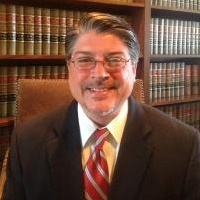Paron Collection Lawyer, Arkansas
Stephen B. Niswanger
✓ VERIFIEDLawsuit & Dispute, Collection, Real Estate, Contract, Construction
Steve Niswanger is the managing member of the firm and has about 20 years experience in business and general litigation and transactions, with an emph... (more)
Lyndsey D. Dilks
Bankruptcy, Bankruptcy Litigation, Collection, Commercial Bankruptcy
Status: In Good Standing
Aaron Lee Squyres
Commercial Real Estate, Real Estate, Litigation, Collection
Status: In Good Standing Licensed: 33 Years
Chris P. Corbitt
Real Estate, Intellectual Property, Collection, Construction
Status: In Good Standing
Frederick Stearns Wetzel
Foreclosure, Credit & Debt, Collection, Bankruptcy & Debt
Status: In Good Standing Licensed: 44 Years
FREE CONSULTATION
CONTACT

